The Physics of Quantum Mechanics in Quantum Internet
Introduction
Quantum mechanics is a fundamental theory in physics that provides a description of the physical properties of nature at the scale of atoms and subatomic particles. Quantum internet, on the other hand, is a theoretical system of interconnected quantum computers that uses quantum signals to send information. The physics of quantum mechanics plays a crucial role in the functioning and potential of the quantum internet.
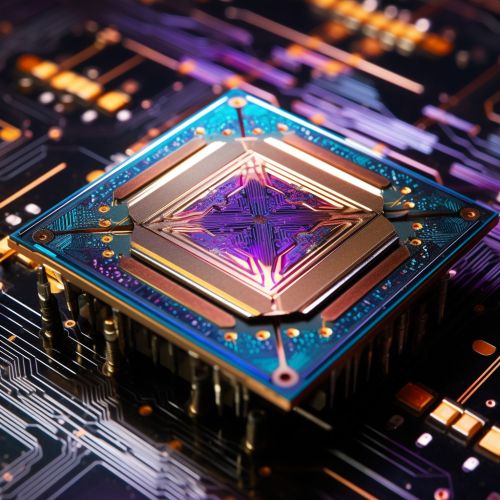
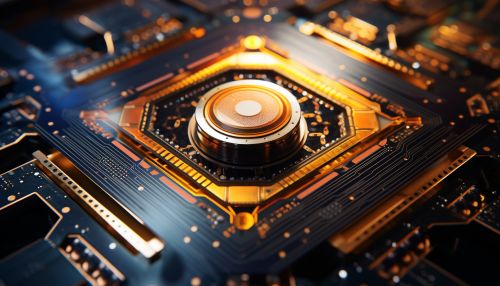
Quantum Mechanics
Quantum mechanics is a branch of physics that deals with phenomena on a very small scale, such as molecules, atoms, and subatomic particles like electrons, protons, and photons. It is a fundamental theory in physics that provides a description of the physical properties of nature at the scale of atoms and subatomic particles. It is the foundation of all quantum physics including quantum chemistry, quantum field theory, quantum technology, and quantum information science.
Principles of Quantum Mechanics
Quantum mechanics is based on several key principles, including the principle of superposition, the principle of uncertainty, and the principle of entanglement.
The principle of superposition states that any two (or more) quantum states can be added together ("superposed") and the result will be another valid quantum state; and conversely, that every quantum state can be represented as a sum of two or more other distinct states.
The principle of uncertainty, also known as Heisenberg's uncertainty principle, states that the more precisely the position of a particle is determined, the less precisely its momentum can be known, and vice versa.
The principle of entanglement is a phenomenon observed at the quantum scale or atomic scale where entangled particles stay connected so that the state of one particle instantly affects the state of the other, no matter how far apart they are.

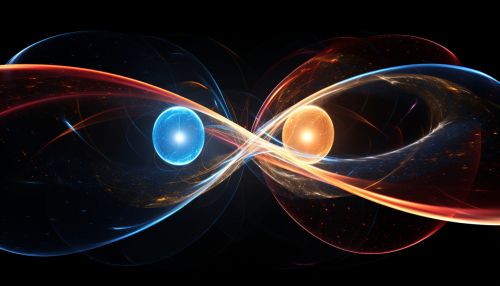
Quantum Internet
Quantum internet is a theoretical system of interconnected quantum computers that uses quantum signals to send information. It is a complex and rapidly evolving field that combines principles of quantum mechanics, quantum computing, and classical internet technology.
How Quantum Internet Works
Quantum internet relies on the principles of quantum mechanics to transmit information. Unlike classical internet, which sends information in binary form (bits), quantum internet uses quantum bits, or qubits, which can represent both 0 and 1 at the same time, thanks to the principle of superposition.
Quantum internet also utilizes the principle of entanglement. When two qubits are entangled, the state of one instantly affects the state of the other, no matter how far apart they are. This allows for instantaneous communication over vast distances, a feature that could revolutionize fields such as cryptography, computing, and networking.
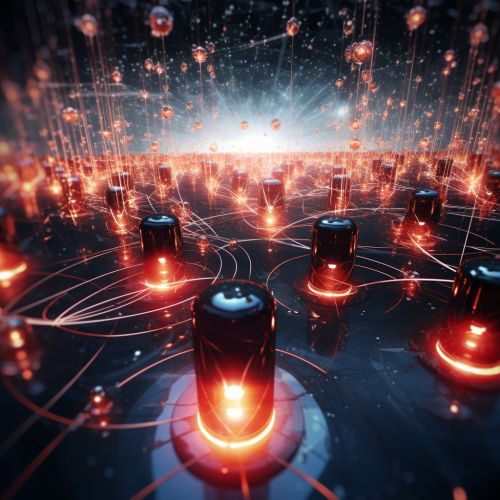
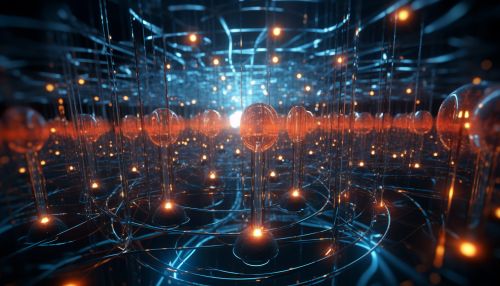
The Physics of Quantum Mechanics in Quantum Internet
The physics of quantum mechanics is integral to the functioning and potential of the quantum internet. The principles of superposition and entanglement, core tenets of quantum mechanics, are what allow quantum internet to exist and function.
Superposition in Quantum Internet
The principle of superposition allows quantum bits (qubits) to exist in multiple states at once. This means that a qubit can represent a 0, a 1, or any quantum superposition of those two qubit states. This allows quantum computers and, by extension, the quantum internet, to process a vast number of computations simultaneously, greatly increasing their speed and efficiency compared to classical computers and internet.
Entanglement in Quantum Internet
The principle of entanglement allows particles to be linked in such a way that the state of one particle is directly connected to the state of another, no matter how far apart they are. In the context of the quantum internet, this allows for instantaneous communication over vast distances. This could revolutionize fields such as cryptography, where entangled particles could be used to create virtually unbreakable encryption, and networking, where the quantum internet could allow for instantaneous global communication.


Potential Applications of Quantum Internet
The potential applications of quantum internet are vast and revolutionary. From ultra-secure communication and advanced computation to precise time-keeping and deep-space communication, the quantum internet could drastically change many fields.
Quantum Cryptography
One of the most promising applications of quantum internet is in the field of quantum cryptography. The use of entangled particles could allow for the creation of encryption keys that are virtually unbreakable. Any attempt to intercept the key would disrupt the entangled state of the particles, alerting the intended recipients to the breach.
Quantum Computing
Quantum internet could also revolutionize quantum computing. By allowing quantum computers to communicate and share information, the quantum internet could greatly increase the speed and efficiency of these already powerful machines.
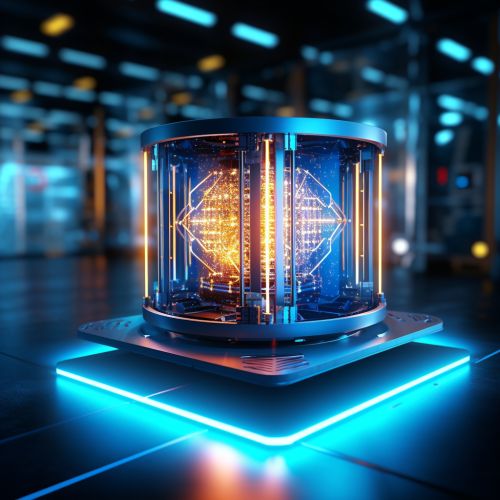
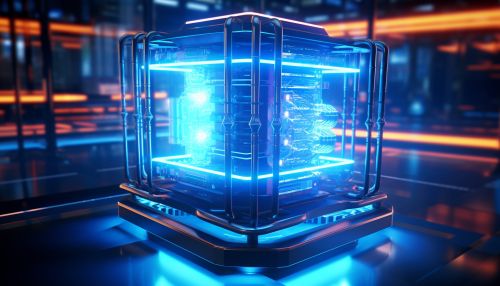
Challenges and Future Research
While the potential of quantum internet is vast, there are many challenges to its implementation. These include the difficulty of maintaining the state of qubits over long distances, the lack of a standardized quantum communication protocol, and the need for more research into the potential security vulnerabilities of quantum internet.
Despite these challenges, research into quantum internet is ongoing and progress is being made. With continued research and development, the quantum internet could become a reality in the not-too-distant future.
